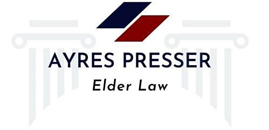Guardianships
Guardianship is a legal process that allows a designated individual or entity to make decisions on behalf of an incapacitated person, known as the ward. Understanding the nuances of guardianship is crucial for families and individuals facing complex healthcare and financial decisions.
An incapacitated person is incapable of making personal and financial decisions due to mental or physical disability because of age, illness, accident, or congenital condition. In a guardianship, the court appoints a guardian who will have the authority to make decisions on behalf of the incapacitated person, covering areas such as healthcare, finances, and personal well-being.
Types of Guardianships
Guardianship of the Person grants the guardian authority over the personal aspects of the ward’s life, including healthcare decisions, living arrangements, and other day-to-day matters. Guardianship of the Estate focuses on financial matters, such as managing assets and paying bills.
A guardianship can be limited or plenary. A Limited Guardianship is tailored to address specific needs or limitations of the ward. It grants the guardian authority over only those aspects deemed necessary, allowing the ward to retain control over other areas of their life. In contrast, a Plenary Guardianship provides the guardian with full decision-making authority over all aspects of the ward’s life.
Who May Need a Guardian?
In some cases, the need for a guardianship may arise unexpectedly. A person may suddenly be disabled because of an accident. Sometimes, an older adult may develop dementia that hinders their cognitive capacity and prevents them from making an emergency medical decision for themselves. Other times, guardianship is necessary for people who need to make decisions for their loved ones who are special needs or disabled due a congenital condition, and recently turned age 18 (the age of majority).
The Guardianship Process
The process begins by filing a petition for guardianship in the county orphans’ court. This petition outlines the reasons for seeking guardianship and provides information about the ward and the proposed guardian. The court will require medical evidence to confirm the extent of the alleged incapacity. Medical evidence may be in the form of an expert report completed by the incapacitated person’s physician. It can also be a written transcript of a deposition where the physician is asked questions by the guardian’s attorney. In any case, the court relies upon this medical evidence in finding that an individual is a legally incapacitated person.
In most counties, the orphans’ court judge will hold a hearing where the proposed guardian will present their petition and request for guardianship. The alleged incapacitated person is required to be present at this hearing, unless the medical evidence shows that it could be harmful to their physical or mental health. During the hearing, the proposed guardian will explain to the judge why guardianship is necessary and why they would be an appropriate guardian. If the guardianship is granted, the judge will sign an order declaring the ward to be a legally incapacitated person and appointing the guardian. The order will also state whether the guardianship is limited or plenary, and whether it is for the person, estate, or both.
Once appointed, the guardian will be required to file annual reports to the court regarding the ward’s finances and personal well-being. In Pennsylvania, these reports may be filed online through the state Guardianship Tracking System.
How Ayres Presser Elder Law Can Help
It is highly recommended that all parties involved, including the alleged incapacitated person and the proposed guardian, seek legal representation. Navigating the guardianship process can be emotionally challenging and legally complex. The experienced attorneys and staff at Ayres Presser Elder Law can guide you through the complexities of guardianship, including representing you as the proposed guardian if a loved one requires a guardianship. We also support our clients after being appointed guardian by helping to navigate the ongoing responsibilities and challenges that may arise.
Guardianships are powerful legal tools designed to protect vulnerable individuals. However, the process can be complex, requiring careful consideration and legal expertise. Contact us today to ensure the well-being and protection of your loved ones.

